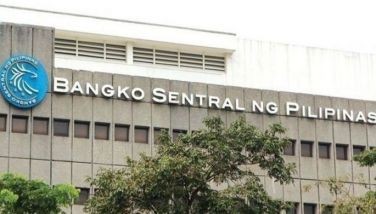Phl starts selling $-denominated bonds
MANILA, Philippines - The Philippines started selling 10-year dollar-denominated bonds at an indicative yield of 4.5 percent, according to sources privy to the deal.
The sale marks the country’s return to the global debt market from a two year absence.
The government shunned the overseas bond market last year to help the central bank manage overflowing liquidity in the domestic financial system.
Tapped as global coordinators for the issue are Deutsche Bank, HSBC, and Standard Chartered Bank while Citigroup, Goldman Sachs, Morgan Stanley, JP Morgan, and ANZ will serve as joint bookrunners.
The size of the issue has yet to firmed up but the country is expected to raise at least $500 million from the offering.
The offering is expected to run until Jan. 21.
The bonds, due 2024, will constitute the direct, unconditional, and unsecured general obligations of the sovereign, and will rank at least equally with all other unsecured and unsubordinated external debt of the Philippines.
Proceeds from the issue will be used by the government to prepay the country’s foreign currency-denominated debt as well as budget support.
The issue was assigned a BBB- rating by Standard & Poor’s Ratings Services and Fitch Ratings, citing the Philippines’ strengthening external profile, moderate inflation, the government’s declining reliance on foreign currency debt.
“The sovereign external balance sheet is strong relative to peers. A persistent current account surplus, underpinned by remittance inflows, has led to the emergence of a net external creditor position in 2009. As a result, Philippine asset markets were less under pressure than some of its peers in the context of market expectations related to the US central bank’s unwinding of its quantitative easing program,†Fitch Ratings said.
Fitch Ratings noted that the Philippine economy remains strong and less volatile than many of its peers, driven by large remittance inflows that boost domestic demand.
However, it pointed out that “while improvements in fiscal management have made general government debt dynamics more resilient to shocks, the low government revenues remain a weakness in the Philippines’ credit profile.â€
“Fundamental structural weaknesses include relatively poor governance standards, lagging development (as illustrated by a low UN Human Development Index score) and a low average per capita income,†Fitch Ratings explained.
- Latest
- Trending





























